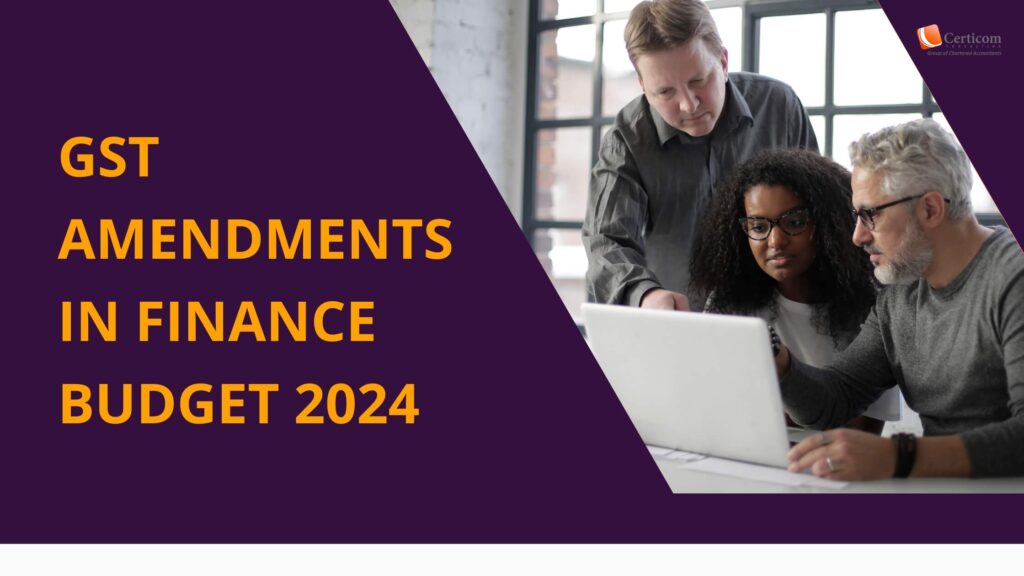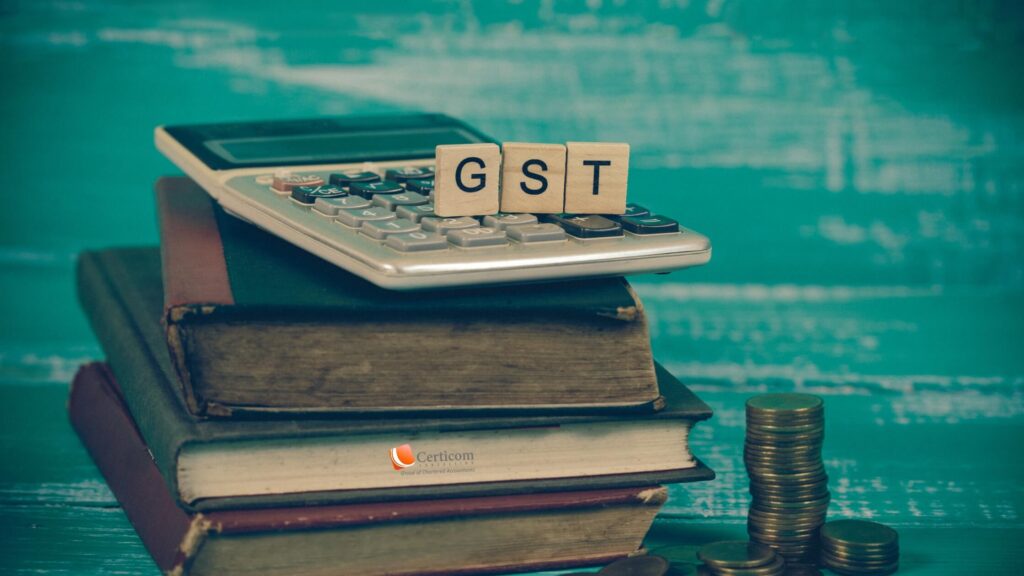GST Amendments in Finance Budget 2024

The Finance Budget 2024 introduces several significant amendments to the Goods and Services Tax (GST) regime. These changes aim to enhance compliance, clarify existing provisions, and address prevalent industry practices. Here’s a comprehensive look at the key amendments and their implications:
Major Amendments
Exclusions under Section 9(1):
Un-denatured extra neutral alcohol or rectified spirit used for manufacturing alcoholic liquor for human consumption is now excluded from GST under Section 9(1).
Introduction of Section 74A:
- Section 74A is introduced after amending Section 10. This section focuses on determining tax discrepancies such as tax not paid, underpaid, erroneously refunded, or input tax credit (ITC) wrongly availed or utilized for the Financial Year 2024-25 onwards.
- Notices for such discrepancies must be served within 42 months from the due date of the relevant annual return. No notice will be served if the amount in question is less than Rs 1,000.
- Penalties for non-fraud cases will be 10% of the tax or Rs 10,000, whichever is higher. For fraud or willful misstatement cases, the penalty will be equivalent to the tax due. The time limit for availing the benefit of a reduced penalty is extended from 30 to 60 days.

Insertion of Section 11A:
- This section empowers the government to waive GST recovery not levied or short-levied due to a generally prevalent trade practice. It aims to regularize non-levy or short levy of central tax due to any such practice.
Amendment to Section 13(3):
- The time of supply for cases where the invoice is issued by the recipient of the supply is now the date of the invoice.
Amendment to Section 16 (CGST Act):
- Introduction of new sub-sections (5) and (6):
- Sub-section (5) allows ITC claims for past financial years (2017-18 to 2020-21) in any return filed under Section 39 up to November 30, 2021.
- Sub-section (6) allows ITC claims for a period when registration was canceled, provided conditions are met and the return is filed within 30 days from the revocation order.
Amendment to Section 17:
- ITC is not allowed on taxes paid under Section 74 for any period up to the Financial Year 2023-24.
Insertion of Proviso to Section 30(2):
- Conditions and restrictions for revocation of registration cancellation will be prescribed later.
Amendment to Section 31:
- Introduces a time limit for compliance under clause (f) and clarifies that an unregistered supplier includes those registered solely for TDS under GST (Section 51).
Amendment to Section 39(3):
- GSTR-7 for TDS under GST must be filed whether or not any deductions were made during the said month.
Amendment to Section 54(15):
- No GST refund of unutilized ITC or IGST will be allowed for zero-rated supply of goods subjected to export duty.
Insertion of Section 70(1A):
- Persons summoned under sub-section (1) must comply by attending in person or through an authorized representative.
Amendments to Sections 73 and 74:
- Restrict applicability for determining tax up to the Financial Year 2023-24.

Amendments to Sections 107 & 112:
- Reduces the maximum amount of pre-deposit for filing appeals with the appellate authority from Rs 25 Crore to Rs 20 Crore.
- The pre-deposit for filing an appeal with the Appellate Tribunal is reduced from 20% (maximum Rs 50 Crore) to 10% (maximum Rs 20 Crore).
- Modifies the time limit for filing appeals before the Appellate Tribunal from August 1, 2024, to avoid time-barred appeals.
Insertion of Section 128A:
- Provides a conditional waiver of interest or penalty for demands raised under Section 73 for the financial years 2017-18 to 2019-20 if the full tax liability is paid.
The proposed amendments in the Finance Budget 2024 bring substantial changes to the GST framework. These amendments aim to provide clarity, streamline processes, and offer flexibility for taxpayers. By addressing issues like tax discrepancies, ITC claims, and procedural compliance, the changes are expected to enhance the transparency and efficiency of the tax system, aligning it with contemporary economic practices. As businesses adapt to these updates, they can anticipate a more straightforward and efficient tax administration landscape.
Related Post
A Beginner’s Guide to E-Filing Income Tax Return for FY 2024-25
Faking Tax Deductions? You Could Be Penalised Up To 200% Under Income Tax Rules
Book A One To One Consultation Now For FREE
How can we help? *




